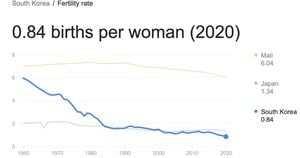Japan is grappling with significant energy security challenges as it navigates the aftermath of Russia's aggressive invasion of Ukraine, which began three years ago. The immediate impacts have been felt across the nation, particularly with surging energy prices, leading to financial burdens on households and businesses alike.
The conflict has heightened the competition for liquefied natural gas (LNG) globally, causing prices to soar. Only recently, it was reported by Kyodo News, "Japanese households are feeling the strain on their finances due to rising electricity and gas bills, largely attributed to this fierce competition." With Japan heavily dependent on LNG imports for its energy needs, the volatility of global markets poses severe risks.
According to the Ministry of Economy, Trade and Industry, nearly 10% of Japan's LNG supply is imported from Russia. This dependency highlights the vulnerability of Japan's energy security strategy, especially as geopolitical tensions remain high, and alternative sources are being sought.
Japan's power and gas companies are currently engaged in efforts to diversify their LNG sources to mitigate risks posed by potential supply disruptions. A significant shift is seen as imperative not just for immediate energy needs, but to pave the way for long-term sustainability and security.
The urgent need for energy resilience is prompting policymakers to reconsider their strategies. Analysts suggest it may involve not only enhancing LNG import capabilities but also accelerating renewable energy development and nuclear power revitalization. The challenges are multifaceted, as Japan's transition to green energy has faced hurdles, such as public sentiment following the Fukushima disaster.
Efforts to restore trust and promote nuclear energy have been met with mixed reactions. Some communities remain hesitant about accepting nuclear projects, fearing the risks associated with nuclear waste management. The Japan Nuclear Fuel Limited (JNFL) has been working on various nuclear waste disposal strategies, launching discussions about sites for permanent storage of nuclear waste.
Despite government initiatives seeking volunteer municipalities for nuclear waste sites, progress has been slow. The Japanese Organization for Nuclear Waste Management (NUMO) struggles to find local support for the long-term storage plan. "It’s challenging due to the substantial opposition from communities, many of which identify as 'nuclear-free zones'," noted local government officials during recent discussions.
The quest for viable energy solutions has been compounded by demographic issues as well. With aging populations shrinking numbers of capable workers, rural areas face doubly difficult circumstances—managing the trade-offs between local economies and national energy needs.
While Japan pushes toward energy diversification and renewable initiatives, citizens remain largely skeptical about nuclear energy after the calamities of the past. For Japan to achieve its energy goals and safeguard economic stability, both nuclear energy and renewable resources are expected to play significant, albeit challenging, roles moving forward.
Japan's pursuit of energy security, amid international pressures, reflects wider global dynamics where energy policies will increasingly need to adapt to shifting geopolitical landscapes. The actions taken today will undoubtedly shape Japan's energy future for generations to come.



